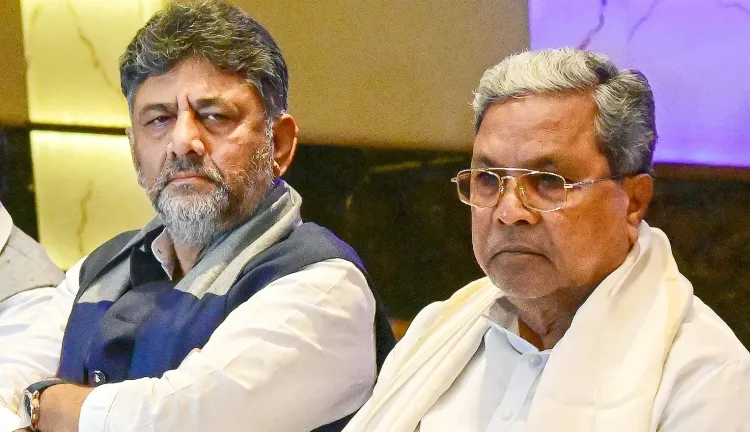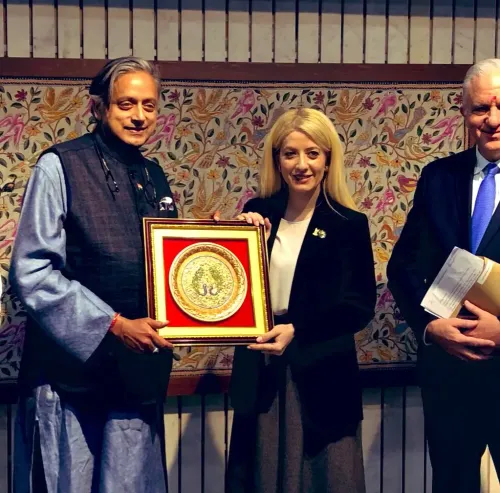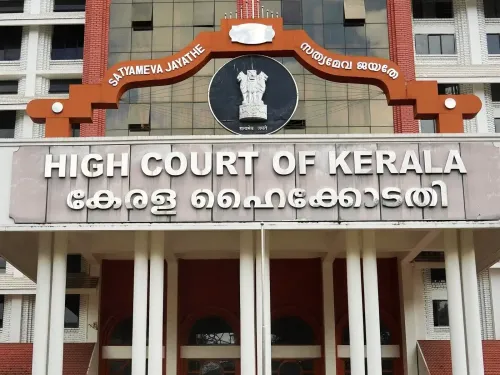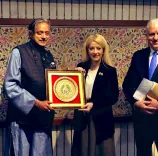What Does the Passage of the Greater Bengaluru Governance (Amendment) Bill 2025 Mean?

Synopsis
Key Takeaways
- The Greater Bengaluru Governance (Amendment) Bill 2025 aims to promote local autonomy.
- It divides the BBMP into five municipal corporations.
- The Bill addresses previous legal concerns regarding government control.
- Municipalities will operate independently, enhancing local governance.
- Shivakumar emphasizes the significance of local body empowerment.
Bengaluru, Aug 19 (NationPress) The Greater Bengaluru Governance (Amendment) Bill 2025 has successfully been passed in the Karnataka Assembly on Tuesday. The Bill was introduced in the House by Deputy Chief Minister and Bengaluru Development Minister D.K. Shivakumar. Following thorough discussions with opposition leaders and legislators, it received approval.
The purpose of this Bill is to partition the Bruhat Bengaluru Mahanagara Palike (BBMP) into five separate municipal corporations. Despite strong resistance from the BJP and JD (S), the Congress-led administration is poised to proceed with the division of the BBMP and conduct elections.
During his address regarding the Bill, Shivakumar clarified: “There is a minor amendment here. Although the Bill was previously passed, some individuals had lodged petitions in court. Therefore, we have now made it explicit in this Bill that the Greater Bengaluru Authority (GBA) will not meddle in the affairs of the municipal corporations that fall under the 74th Amendment of the Constitution.”
Shivakumar further explained: “Under the law currently in effect, the GBA had the authority to intervene in the operations of municipal corporations under its jurisdiction. A PIL was submitted in court claiming that municipalities were being placed under government control. To address this concern, we have now eliminated that provision.
Municipalities will operate independently without being brought under government control. The GBA will refrain from interfering in their activities. This amendment solely aims to provide clarity,” he asserted.
“While the PIL was not upheld by the court, to eliminate any future uncertainties, we have introduced this amendment. Our intention is for mayors and corporators elected directly by the public to hold complete authority. Today, we may be in power, tomorrow we may not — but no disputes should arise. This is why we have removed it,” Shivakumar emphasized.
Furthermore, he stated: “I have conducted extensive studies on rural and urban development. I completed my degree at the age of 47, and in Political Science, I scored the highest in the subject of local bodies. When Rajiv Gandhi introduced the 73rd and 74th Amendments, he visited Karnataka. I inquired about the purpose of these amendments. He explained to me that leaders must be nurtured from Panchayats to Parliament. The goal of these amendments was to fortify local bodies by granting them autonomy.”
He continued: “The Congress will never permit the dilution of Rajiv Gandhi’s landmark amendments. When I served as the Urban Development Minister, we made the Belur Declaration alongside Revenue Minister Ghorpade. At that time, each Panchayat received merely Rs 1 lakh in grants. During S.M. Krishna’s administration, this was increased to Rs 5 lakhs, and later 27 departments were integrated under Panchayats to empower them.”
“The minor amendment we are proposing today is solely to empower municipalities and prevent misunderstandings. Some members, like BJP MLA Satish Reddy, have raised concerns that certain villages in their constituencies were omitted. If we incorporate villages now, Panchayat members would automatically transition into municipal corporators, potentially leading to objections. Consequently, we will first conduct elections within the current municipal limits, and later, after discussions with all of you, we will determine the expansion of boundaries.”
“Mahadevapura generates the highest tax revenues, while other regions of Bengaluru do not yield as much. In such scenarios, the state government must provide financial support. However, funds from one municipality cannot be transferred to another — doing so would violate the 74th Amendment again. If you do not support this amendment, please inform me, and I will retract it. Our sole aim is to enhance the welfare of municipalities,” Shivakumar declared.
“If there is no interest in this amendment, I am prepared to withdraw it. Our goal is to ensure that when other parties assume power in the future, they cannot misuse it to bring municipalities under government control,” he stated.
He reminded legislators: “Prominent leaders like Suresh Kumar and Ramalinga Reddy began their political careers as corporators before reaching the Assembly. Jawaharlal Nehru was the inaugural president of the Allahabad Municipal Corporation. Rajagopalachari, Sardar Patel, and Kengal Hanumanthaiah also held municipal leadership positions. Tamil Nadu CM Stalin was once the Mayor of Chennai. Leaders such as B.D. Jatti and Vilasrao Deshmukh initiated their careers as Panchayat presidents.”
“I do not intend to politicize Bengaluru’s future, nor will I. Municipalities will possess the powers of taxation, financial independence, reservation, elections, and the state government will not interfere. The 74th Amendment remains fully safeguarded. This amendment is solely for clarity and must receive approval,” he appealed.









